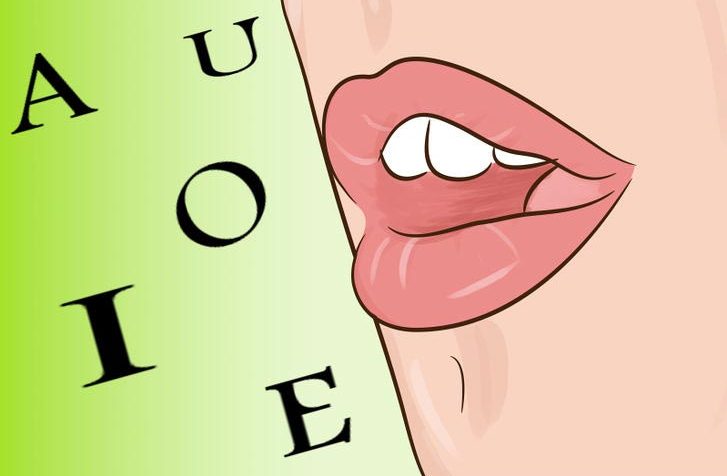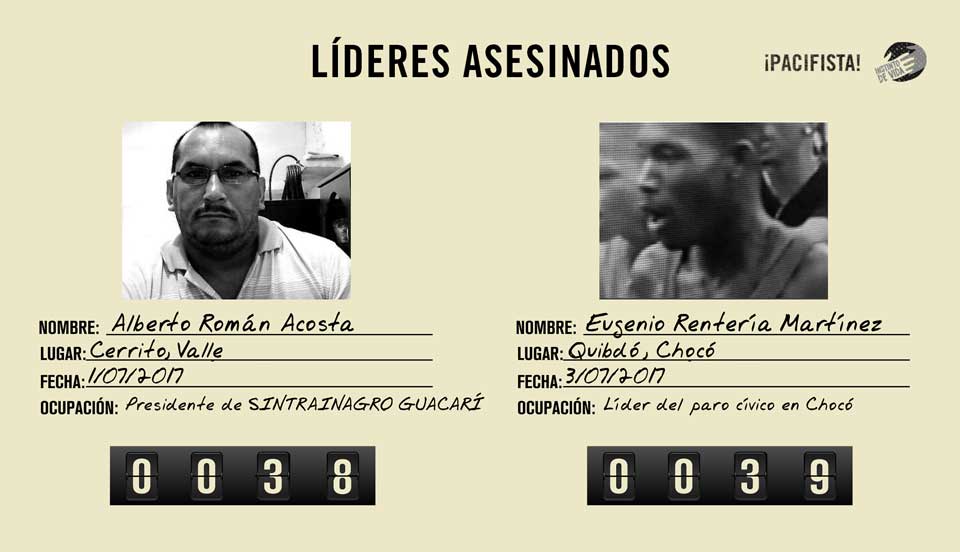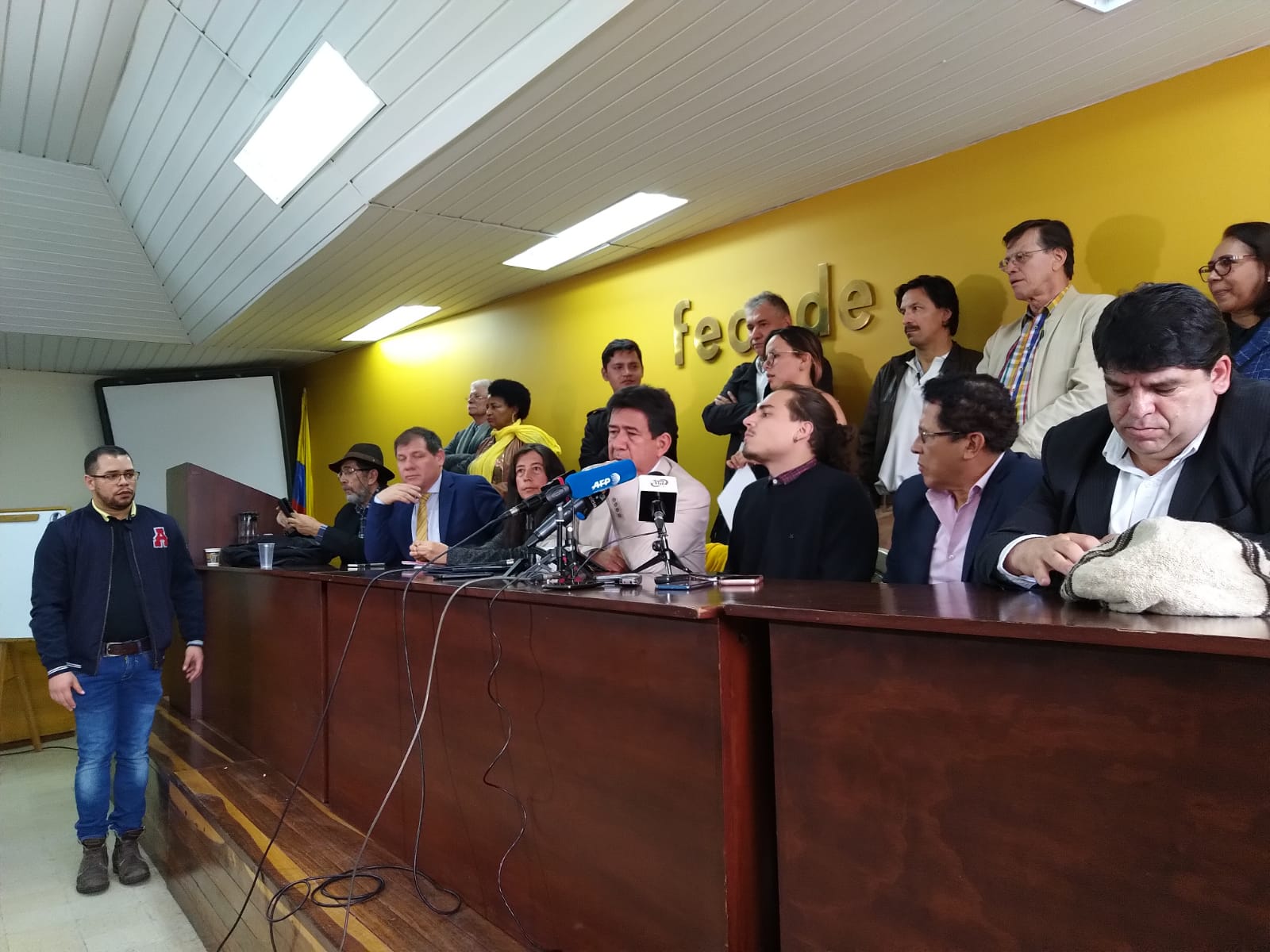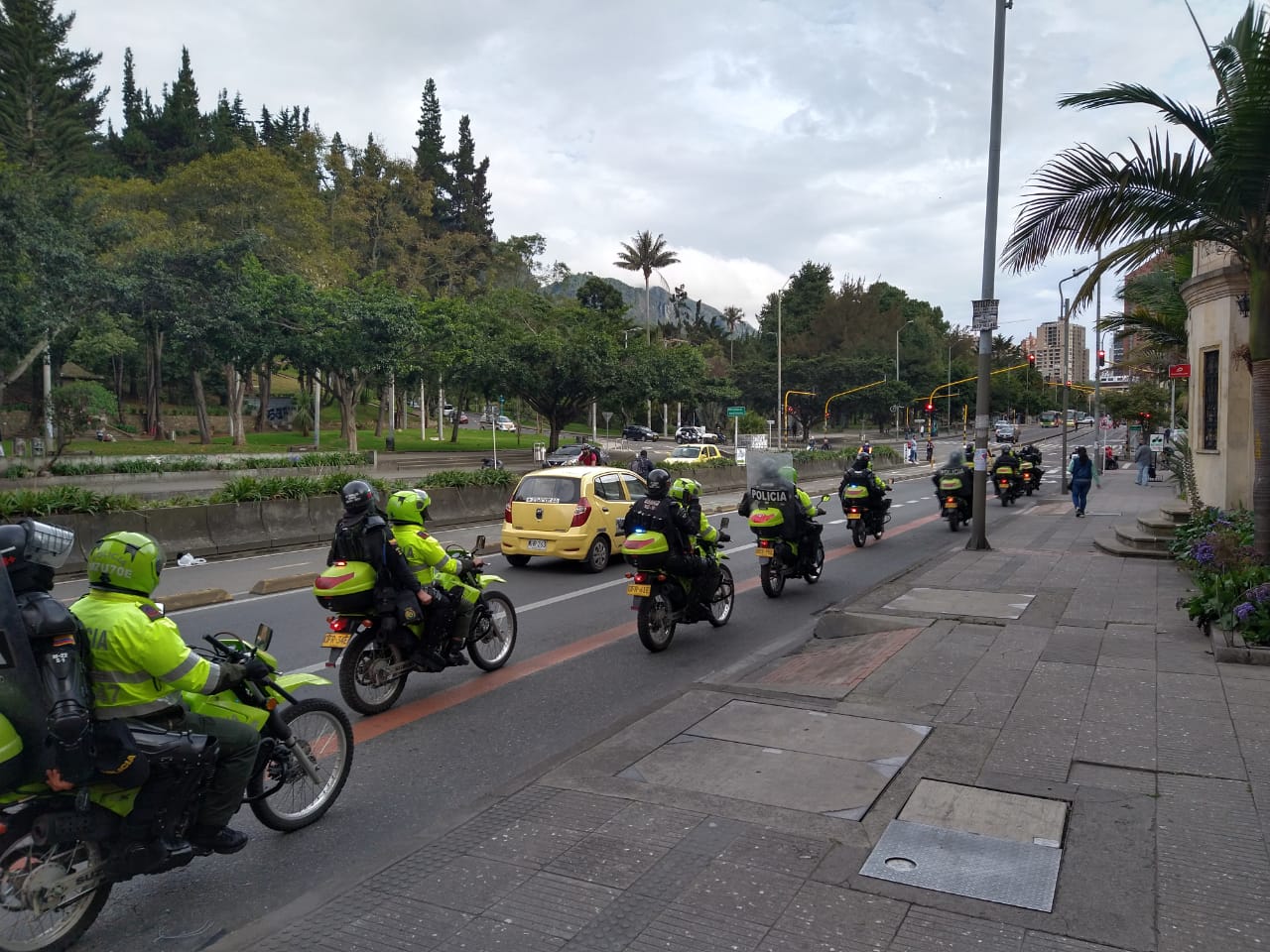 On Trial is a Bogotá Post feature in which we will put someone or something from the Colombian news “on trial”, trying to explain the perspective of both their fans and their critics.
On Trial is a Bogotá Post feature in which we will put someone or something from the Colombian news “on trial”, trying to explain the perspective of both their fans and their critics.
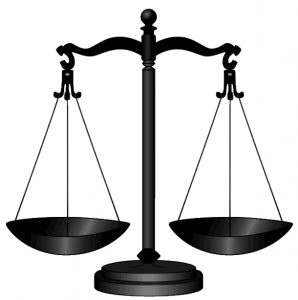 In this edition we put on trial the outgoing Bogotá mayor Gustavo Petro.
In this edition we put on trial the outgoing Bogotá mayor Gustavo Petro.
For the Prosecution |
For the Defence |
| Ladies and gentlemen of the jury, Gustavo Petro supporters will tell you that he defends the poor and the vulnerable. But does he? When petristas tell me how much Petro’s helped low-income Bogotanos, I like to bring up this number: COP$17,000 million pesos (about USD$5.6 million). That’s how much Petro himself admitted the city lost when he made his hasty change to a new rubbish collection scheme. Or this number: COP$400.000 million. That’s how much the Transmilenio says it lost because of Petro’s rash, populist decision to lower TM fares during off-peak hours. Petro himself recognised the flaw in the plan, and re-raised the fares.
That’s money that can’t be used to build the metro, which instead will have to be financed by public companies, which in turn will not have the finances to serve Bogotanos as well as they should. It’s money that can’t be used to address the consistently increasing percentage of citizens who say they are unhappy with the quality of their healthcare, the more than 80% of students in district schools who only can go to school for a half day, and the almost 190,000 potholes Petro has left unfixed out of the 220,000 he promised to cover. Don’t make the mistake, ladies and gentlemen, of thinking this is just a matter of Petro losing money on well-intentioned but poorly thought out initiatives. He has a history of giving out contracts with no bidding to inexperienced companies, some of which have connections to his family. For example, as much as he might protest against the way Transmilenio contracts disproportionately favoured private companies, that didn’t stop his TM head from 2012-14, Fernando Sanclemente, who is married to one of Petro’s in-laws, from extending those same contracts, and being accused of taking a commission in the process. As for his government’s reduction in poverty, homicides, inequality and unemployment; I’d like to hear petristas explain why the credit shouldn’t just go to President Santos, who has overseen similar drops in those categories all over the country. I’d also like to hear them explain the consistent increases in the rate of theft during this administration, and the 6.5% increase in homicides Bogotá saw from 2013 to 2014. Regarding his admittedly admirable stance against corruption while he was in Congress, it’s not as black and white as it might seem. Yes, he risked his life by accusing then-President Álvaro Uribe of parapolitica, but he also made a deal with Uribe to help set the rules for Uribe’s 2006 re-election, which needed special legislative measures because presidential re-election had previously been illegal. According to Semana columnist Daniel Coronell, Petro’s Polo party agreed to support the new law in exchange for writing the legislation so that it would guarantee them USD$2 million in campaign funding. That wasn’t the only time Petro appeared to sacrifice principles for self-interest. He voted for strict Catholic conservative Alejandro Ordoñez for procurador (the supervisor of most public servants in the country) in 2009, bizarrely claiming that he was sure the book-burning Catholic extremist would defend human rights and the environment. Coronell asserted that Petro’s vote was actually given in exchange for Ordoñez giving a job to in the procuradoría to one Petro’s cronies. Whatever his reasons, Petro must regret the vote now, after Ordoñez has tried to impeach him twice. Finally, I would like to to tell you the story of Petro’s most egregious break with his principles. A construction company owned by his in-laws wanted to build apartments in an area around a protected wetland called La Conejera. Whether or not the apartments would actually be inside the wetland is debatable. The quick approval process for the construction (less than one month for a process that normally takes around a year, according to city councilman Roberto Saénz), coincided with a period in which Petro was incapacitated. When he returned from his medical leave, Petro found himself in the awkward position of somehow defending his environmentalist principles without condemning his wife’s family. He attempted to square this circle by recusing himself from the case because of the family connection, while also claiming that no construction licenses should be given to build in that area. To top it off, it was alleged that the land itself used to belong to the notorious Nule cousins, who stole hundreds of millions of dollars from Bogotá during the contracting carousel scandal, and that the Nules gave it to the construction company as a payment for a debt. I submit to this court, then, that Petro is only a fierce opponent of the most reactionary forces in Colombian politics when it’s convenient for him, is only a crusader against corruption when it suits him, and is only a defender of the environment when it fits his own interests. |
Ladies and gentlemen of the jury, I’m going to tell you what all Petro defenders know: you can’t judge Petro the way you judge other mayors. Other mayors haven’t faced the blind, hate-driven opposition he has. For example, yes, the rubbish collection scheme lost money, but that was because it was sabotaged. Emilio Tapia, an insider in the contracting carousel, stated that under oath. City council representatives and private contractors conspired to get Petro out of the mayor’s office, and they used the rubbish collection change to do it.
Despite that sabotage, that same rubbish collection plan is now leaving surpluses of almost COP$18,000 million, while saving users more than COP$37,000 million in fees. Perhaps more importantly, they’ve paid almost COP$25,000 million to recyclers, who before were part of the vast informal economy. 4,000 of these recyclers marched in Bogotá in November 2014 to show their support for the program and protest a fine the procurador wanted to impose against it, saying it has helped them to “learn to recycle for our own benefit and that of our families” and it has “improved the quality of our life.” Now, ladies and gentlemen of the jury, that’s not the only way Bogotá’s poorest have benefited from the Bogotá Humana government. Poverty has been cut in half by one measurement, and inequality dropped below .50 on the Gini Index for the first time in the city’s history. More than 680,000 of the poorest Bogotanos are now receiving free water, and there was a nearly 20% increase in the number of displaced persons receiving attention from the government. His disarmament campaign led to a more than 20% drop in murder during his first year as mayor, an accomplishment which benefits crime-ridden impoverished neighbourhoods more than others. Despite those accomplishments, the powers that be in Colombia couldn’t stand to see Petro succeed, and so went to great lengths to remove him from office. Procurador Ordoñez’s first attempt to impeach him was described by The Economist, not exactly a left-wing publication, as an “administrative lynching”. Even though the courts saved Petro from the “lynching”, it was a lot closer than it should have been. Prior to the impeachment being suspended, the Interamerican Court of Human Rights (CIDH) had ruled that it should be overturned. President Juan Manuel Santos, part of one of Colombia’s most powerful families, refused to recognize the CIDH’s ruling, but luckily for Colombians, could not disregard the subsequent order from the domestic courts to suspend the impeachment. Still, Ordoñez hasn’t had enough, and now is trying to impeach him again, this time for alleged irregularities in the mayor’s plan for land use in Bogotá. Despite the procurador’s sword of Damocles hanging over his head, Petro has continued racking up accomplishments. After 70 years of trying to build a metro in the city, the Bogotá Humana government is the first to secure complete financing for the first line. He continues to fight for animal rights, establishing free veterinary services for the pets of low-income residents, and demanding unsuccessfully that the city have a chance to make its overwhelmingly unfavourable opinion of bullfighting heard during the October elections. Of course, I could not properly defend Mayor Petro if I didn’t mention his legacy as a congressman and senator. Even Daniel Coronell, one of Petro’s sharpest critics, concedes that the mayor was one of the best senators the country has ever had. Coronell writes that: “…. he exposed alliances between politicians and organised crime. His arguments were serious, convincing and well documented….. He faced unfair accusations with bravery.” It’s hard to choose which is the most admirable part of Petro’s legacy in Congress. His investigations of Uribe’s alleged links to the paramilitaries? His exposure of corruption in his own party during the contracting carousel? His condemnations of his own congressional colleagues for taking money from rural subsidies? Yes, he made mistakes. His vote for Ordoñez is particularly hard to accept, though he did at least later recognise that it was done out of stupidity. While he did help set the rules to allow Uribe’s re-election, that two million dollars Polo accepted as part of the law strengthened what Colombia desperately needs: genuine political opposition. However, ladies and gentlemen, those mistakes are not what should define Gustavo Petro. He kept his focus on the most vulnerable Colombians at a time when most of the powerful would have preferred to ignore them in the name of “progress.” He was humane in the most inhumane of times. That’s how we should remember him. |
[polldaddy poll=9231831]
The Opinion section is a space for your views and opinions. We’ve featured articles on all aspects of life in Colombia – from the free trade agreement to bull fighting.Whether you agree or disagree with anything we’ve written, we’d love to hear your thoughts – leave a comment below, tweet us at @bogotapost, post on our Facebook page /BogotaPost or email us at [email protected].The articles in ‘Opinion’ are commentary, not news reporting. The views expressed in this section are those of the author and do not necessarily reflect those of The Bogota Post or its publishers. The publishers take no responsibility for the accuracy of any information published in this section. |


